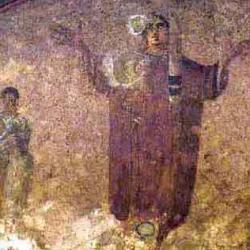“The division . . . between ‘corporate’ and ‘private’ worship must be discarded,” writes Alexander Schmemann in his Introduction to Liturgical Theology (24).
He explains: “The purpose of worship is to constitute the Church, precisely to bring what is ‘private’ into the new life, to transform it into what belongs to the Church, i.e. shared with all in Christ. In addition its purpose is always to express the Church as the unity of that Body whose Head is Christ. And, finally, its purpose is that we should always ‘with one mouth and one heart’ serve God, since it was only such worship which God commanded the Church to offer.”
Even “private” devotional practices are part of the worship of the church.
Schmemann also criticizes the isolation of “sacraments” as distinct liturgical actions: “In the same way it is impossible to justify the division of the Sacraments into separate liturgical departments, with the Eucharist regarded simple as ‘one among several.’ The Eucharist is the Sacraments of the Church, i.e. her eternal actualization as the Body of Christ, united in Christ by the Holy Spirit. Therefore the Eucharist is not only the ‘most important’ of all the offices, it is also source and goal of the entire liturgical life of the Church. Any liturgical theology not having the Eucharist as the foundation of its whole structure is basically defective” (24).











